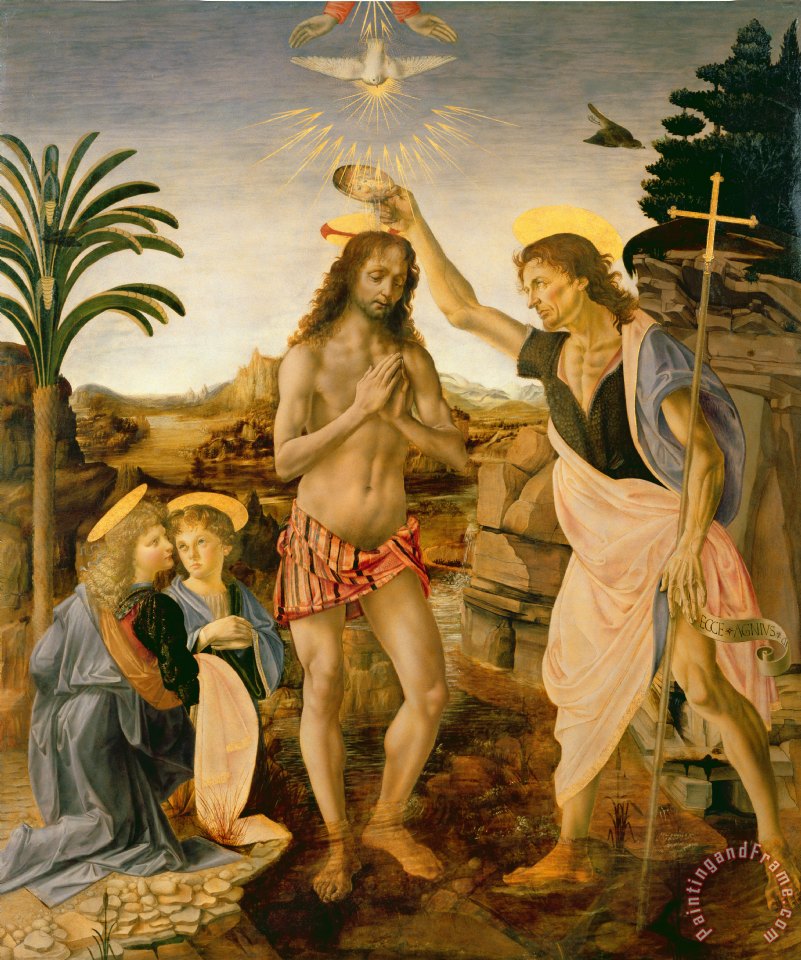Spiritual Sunday
Christians are currently in the Epiphany season, which marks the moment when the world awakens to the presence of God in its midst. The official Epiphany is the wise men finding the infant Jesus, but there are many epiphanies and today’s Gospel reading provides another one: Jesus experiences an epiphany when he is being baptized by John. It is at this moment that Jesus fully realizes that God is within him:
Now when all the people were baptized, and when Jesus also had been baptized and was praying, the heaven was opened, and the Holy Spirit descended upon him in bodily form like a dove. And a voice came from heaven, “You are my Son, the Beloved; with you I am well pleased.”
Religiously speaking, an epiphany is any moment when God enters the human realm, and of course poets speak of having an epiphany when suddenly light breaks through. Milton alludes to a number of the Bible’s epiphanic moments to account for the inspiration that led to the composing of Paradise Lost.
For him, the Holy Spirit functions as his epic muse, a Christian version of Calliope, who inspired Homer and Virgil. In the well-known opening to his epic, Milton makes reference to Moses (“that Shepherd”) being inspired by the Spirit and that same spirit, “dove-like,” impregnating the “vast Abyss” at the beginning of creation:
Of Mans First Disobedience, and the Fruit
Of that Forbidden Tree, whose mortal taste
Brought Death into the World, and all our woe,
With loss of EDEN, till one greater Man
Restore us, and regain the blissful Seat,
Sing Heav’nly Muse, that on the secret top
Of OREB, or of SINAI, didst inspire
That Shepherd, who first taught the chosen Seed,
In the Beginning how the Heavens and Earth
Rose out of CHAOS: Or if SION Hill
Delight thee more, and SILOA’S Brook that flowed
Fast by the Oracle of God; I thence
Invoke thy aid to my adventurous Song,
That with no middle flight intends to soar
Above th’ AONIAN Mount, while it pursues
Things unattempted yet in Prose or Rhyme.
And chiefly Thou O Spirit, that dost prefer
Before all Temples th’ upright heart and pure,
Instruct me, for Thou know’st; Thou from the first
Wast present, and with mighty wings outspread
Dove-like satst brooding on the vast Abyss
And mad’st it pregnant: What in me is dark
Illumine, what is low raise and support;
That to the heighth of this great Argument
I may assert th’ Eternal Providence,
And justify the ways of God to men.
It is significant for Milton that epiphanies often occur at our darkest moments. Just as the Christmas star shone during the coldest and darkest time of the year and the Holy Spirit shone and overcame the darkness described in Genesis, so Milton himself launched into Paradise Lost when he was blind and in prison. It therefore makes sense that that his poem would begin in Hell, which he describes as “Stygian darkness” and “darkness visible,” and that it would conclude with Adam delivering such lines as the following. He has just heard about that sacrifice that Jesus will make ages in the future:
O goodness infinite, goodness immense!
That all this good of evil shall produce,
And evil turn to good; more wonderful
Then that which by creation first brought forth
Light out of darkness!
Milton begins his poem in darkness, unsure how he can possibly justify God’s ways to man. How is one to make sense of all the suffering we undergo? By Book XII he has his answer.


